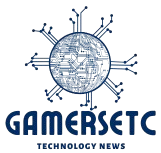Public Diplomacy Minister Galit Distel Atbaryan said Thursday that Channel 13 news wanted government ministers to be shot and said he was boycotting the network after one of its anchors criticized him on air.
The outburst followed inflammatory comments from Distel Atbaryan on Tuesday in which she lashed out at the opposition by appearing to draw a distinction in how Sephardi and Ashekanzi Jews should talk about the Holocaust.
“It wouldn’t surprise me if Channel 13 had a stopwatch counting down the time until one of us got shot because that’s what they’re aiming for,” Distel Atbaryan said in an interview with the right-leaning Channel 14. Distel Atbaryan made the comments after tearing into Channel 13 anchor Hila Korach, who denounced the minister the day before over the Holocaust comments.
Channel 13 said in response to Distel Atbaryan’s tirade, “This is a severe incitement against the media in Israel and must be condemned.”
Setting off the controversy, Distel Atbaryan gave a fiery speech in the Knesset on Wednesday against comparisons, ostensibly drawn by some of her detractors, between Likud leaders, allegedly including herself, and Nazis.
“They call me the propaganda minister — Goebbels here, Goebbels there,” she said, referring to Joseph Goebbels, whose official title under Adolf Hitler was Reich minister of public enlightenment and propaganda. “Nazi [comparisons] like confetti. A dozen Hitlers a dime. I don’t even find it shocking anymore.”
Addressing her critics, she continued: “That’s bad news for you because for years, I’ve safeguarded the memory of [the victims of the] Holocaust. I’ve fought the trivialization of the Holocaust for years. But it doesn’t shock me anymore. And it’s your families that were burned there. How is this possible?”
The Holocaust’s victims were mostly European Ashkenazi Jews, but in Israel it is treated, and experienced, as a tragedy of the entire Jewish people. That includes Sephardim, who predominantly immigrated to Israel from the Middle East and North Africa and accounts for about half of the country’s Jewish population.
Distel Atbaryan’s speech was primarily about the radical judicial overhaul led by Prime Minister Benjamin Netanyahu and his Likud party, which has campaigned on a sentiment of disfranchisement among Sephardi voters and is the most popular party in many heavily Sephardi municipalities. Some government ministers portray the opposition and judiciary as a privileged elite dominated by the Ashkenazi establishment.
After Distel Atbaryan’s comments, Channel 13’s Korach denounced the rhetoric in a monologue during the network’s nightly broadcast.
“There was one thing in your speech that should disturb anyone who wants to continue living here as one nation,” Korach said, addressing his monologue to Distel Atbaryan. “That trivialization of the Holocaust should worry ‘you’ because ‘your’ families burned.”
עומדת שרת ההסברה מעל דוכן הכנסת ואומרת שזילות השואה צריכה ״אתכם״ כי כי המשפחות נשרפו בשואה. למי בדיוק התכוונת? מי אלה הם ואנחנו? Home
הילה קורח על נאום ״נאצימ@HKorach pic.twitter.com/WAMCmNIfNi
— חדשות 13 (@newsisrael13) March 16, 2023
“Who did you mean?” Korach asked. “Did you mistakenly mean to hint, or say explicitly, that the Holocaust is an ‘issue for the leftists,’ that is to say, ‘of the Ashkenzis who are of course leftists?’”
After the monologue, Distel Atbaryan wrote on Twitter, “I’m completely boycotting Channel 13,” accusing the network of “unfairly editing” her comments.
“That network has become a hotbed of incitement and poison. I’m not setting foot there again,” she said in a post ahead of her Channel 14 interview.
Distel Atbaryan’s remarks also set off a ruckus on social networks, with some construing the minister’s remarks to mean that she should be able to care less about the Holocaust because most of its victims were related to left-wing Ashkenazi Jews now critical of the overhaul.
In a Wednesday Facebook post, Distel Atbaryan pushed back against the criticism of her speech. “I stand behind what I said last night. I am no longer shocked when I hear my name and the title ‘propaganda minister,’” she wrote, saying she perceived the title as a reference to Goebbels.
In a subsequent interview with The Times of Israel, Distel Atbaryan insisted that she did not mean to draw a distinction between Sephardim and Ashkenazim, but merely to protest the abuse of the memory of the Holocaust victims generally, saying she is “aghast at such interpretations. ”
“It’s not what I meant and, in hindsight, I regret having used language that can be interpreted as drawing a distinction between how different groups of Israelis should talk about the Holocaust. None of us should be making Nazi comparisons,” she said. “There’s no excuse for it. What I mean is that it hurts me, especially when I see it being done by people whose own relatives perished in the genocide, because this explanation defies.”

